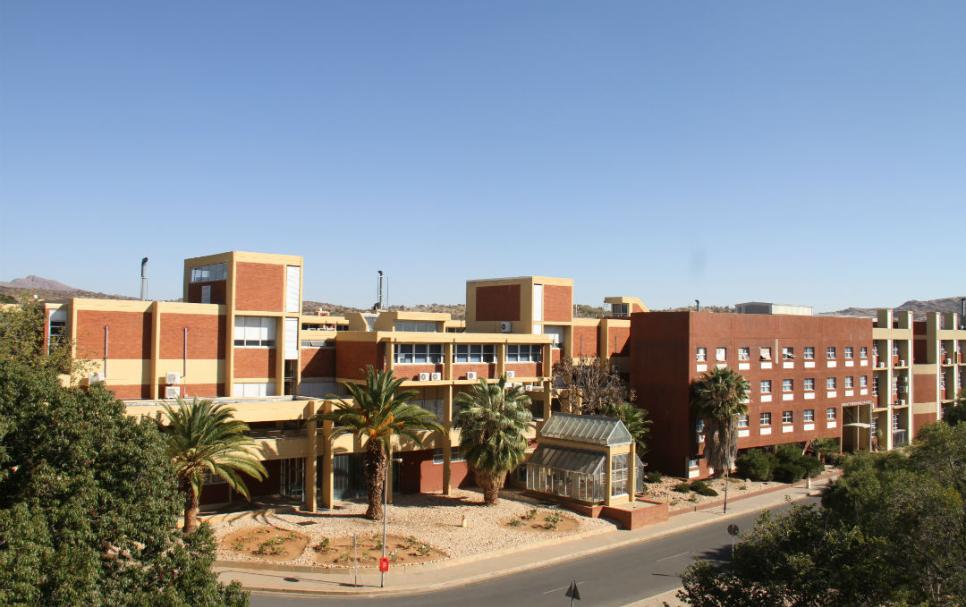Why moot court competitions at UNAM merits greater support

The atmosphere within the University of Namibia’s Moot Court was one of palpable anticipation. Law students, impeccably attired in formal attire, adjusted their notes as the presiding judges entered the room. For many, this was not merely a competition but an initiation into the realities of legal advocacy, an opportunity to argue, reason, and persuade under the scrutiny of a judicial panel.
The University of Namibia (UNAM) recently hosted its annual moot court competition under different Students’ societies, an event designed to refine students’ advocacy and analytical skills through simulated courtroom proceedings. These exercises replicate real judicial processes, allowing participants to translate theoretical knowledge into practical argumentation. The cases presented ranged from fictional scenarios to those inspired by actual Namibian legal disputes, compelling students to engage deeply with issues of constitutional interpretation, administrative law, and criminal justice.
A Platform for Aspiring Legal Practitioners
For law students, moot court competitions represent far more than an academic exercise. They are practical laboratories in which advocacy, research, and composure are tested. Competitors are required to research case authorities, prepare written submissions, and present oral arguments before panels often composed of practicing attorneys, lecturers, or High Court judges.
“I was extremely nervous when I stood before the judges,” one participant admitted afterward.
“They questioned every argument I made, but I left the room with a clearer understanding of what real advocacy demands.”
Such reflections capture the essence of moot court, to cultivate confidence, clarity, and discipline qualities essential for every future lawyer, magistrate, or legal academic. These experiences transform abstract principles into tangible skills and prepare students for the professional realities of courtroom practice.
Concerns About Preparation and Transparency
Nevertheless, the competition also exposed certain structural shortcomings that merit attention. Many students participated without sufficient preparatory support. Unlike some other universities in Africa, where moot court is offered as a formal academic module, UNAM treats it solely as an extracurricular activity. Consequently, students enter the competition with varying levels of preparedness, often relying on self-instruction or peer guidance.
A number of participants expressed disappointment regarding inconsistencies in training and evaluation. “We invested considerable effort,” one student observed, “but at times it felt as though the process prioritised judgment over learning.” Others raised concerns about transparency in the appointment of judges and the criteria used to evaluate performance. These sentiments highlight a fundamental issue, moot court exercises should primarily serve as educational tools that promote growth and constructive feedback rather than discouragement.
The call, therefore, is not for criticism but for reform. Transparent procedures in the selection of judges and clear communication of assessment standards would ensure that the competition fulfils its primary pedagogical function, to teach and to inspire.
When Academia Meets the Profession
Despite these challenges, the event remains a valuable milestone in legal education. The involvement of practicing lawyers and sitting judges added immense value to the proceedings. Notably, ENS Africa and other law firms generously supported the initiative, demonstrating the private sector’s vital role in bridging the divide between academia and the legal profession. Their participation provided mentorship, financial assistance, and professional guidance, all of which enriched the experience for the competitors.
A senior judge who volunteered as an adjudicator commended the students’ courage: “It takes immense bravery to argue a case before a panel, particularly for the first time. We were all once in their position. The only way to master the craft of advocacy is through experience.”
This sentiment underscores the significance of practical learning. Moot court competitions are not ends in themselves; they are preparatory stages for the responsibilities that await law graduates. Firms that invest in such initiatives are, in essence, investing in the competence and ethical strength of Namibia’s future legal practitioners.
Why Law Firms Should Invest
For law firms, contributing to moot court initiatives should not be viewed as a charitable gesture but as a strategic investment in the nation’s legal infrastructure. These competitions identify promising talent early, students who exhibit not only intellectual capacity but also the composure, logic, and rhetorical skill demanded in professional advocacy.
Many of Namibia’s most respected advocates and judicial officers trace their formative experiences to similar competitions. Supporting moot court events therefore allows law firms to shape the next generation of legal practitioners, aligning academic preparation with professional expectations. Furthermore, such partnerships enhance the collective reputation of the Namibian legal fraternity as one committed to excellence, mentorship, and the pursuit of justice.
The Role of the University
Nevertheless, institutional commitment remains indispensable. For UNAM to maintain its status as the country’s premier legal training institution, moot court should be incorporated as a compulsory component of the curriculum rather than remaining an occasional extracurricular activity. A structured course would guarantee that every student receives equal exposure to advocacy training, continuous mentorship, and systematic evaluation.
Theoretical instruction alone cannot produce competent practitioners. Practical legal education bridges the gap between academic knowledge and professional readiness. Moot court competitions provide a safe and supportive environment for students to make mistakes, refine their skills, and develop confidence before they enter real courtrooms.
As one finalist aptly noted, “We love the law, but we need consistent opportunities to practise it. Moot court should be that space, fair, transparent, and properly supported.”
Recognising Effort and Fostering Progress
Despite the shortcomings, there is ample reason for gratitude. Appreciation is due to the judges who volunteered their time, the lecturers who organised the event, the law firms that offered sponsorships, and, above all, the students who displayed courage in advocating before a bench for the first time.
For each student who faltered under pressure but persisted, the experience was formative. These exercises cultivate resilience and professionalism. They remind us that justice begins not only in the nation’s courts but in its classrooms, in the willingness of students to test their abilities and of institutions to nurture them.
Namibia’s vision of a fair and accessible justice system depends upon a new generation of advocates who are skilled, ethical, and courageous. Moot court competitions, if properly supported, can play a decisive role in achieving that vision. With adequate transparency, preparation, and investment, UNAM’s moot court could become a national incubator for the country’s future judges, prosecutors, and human rights defenders.
Compiled By Brian Ngutjinazo, a final year Law Student and a Finalist in the Moot Competition at the University of Namibia
- 679 views










Comments